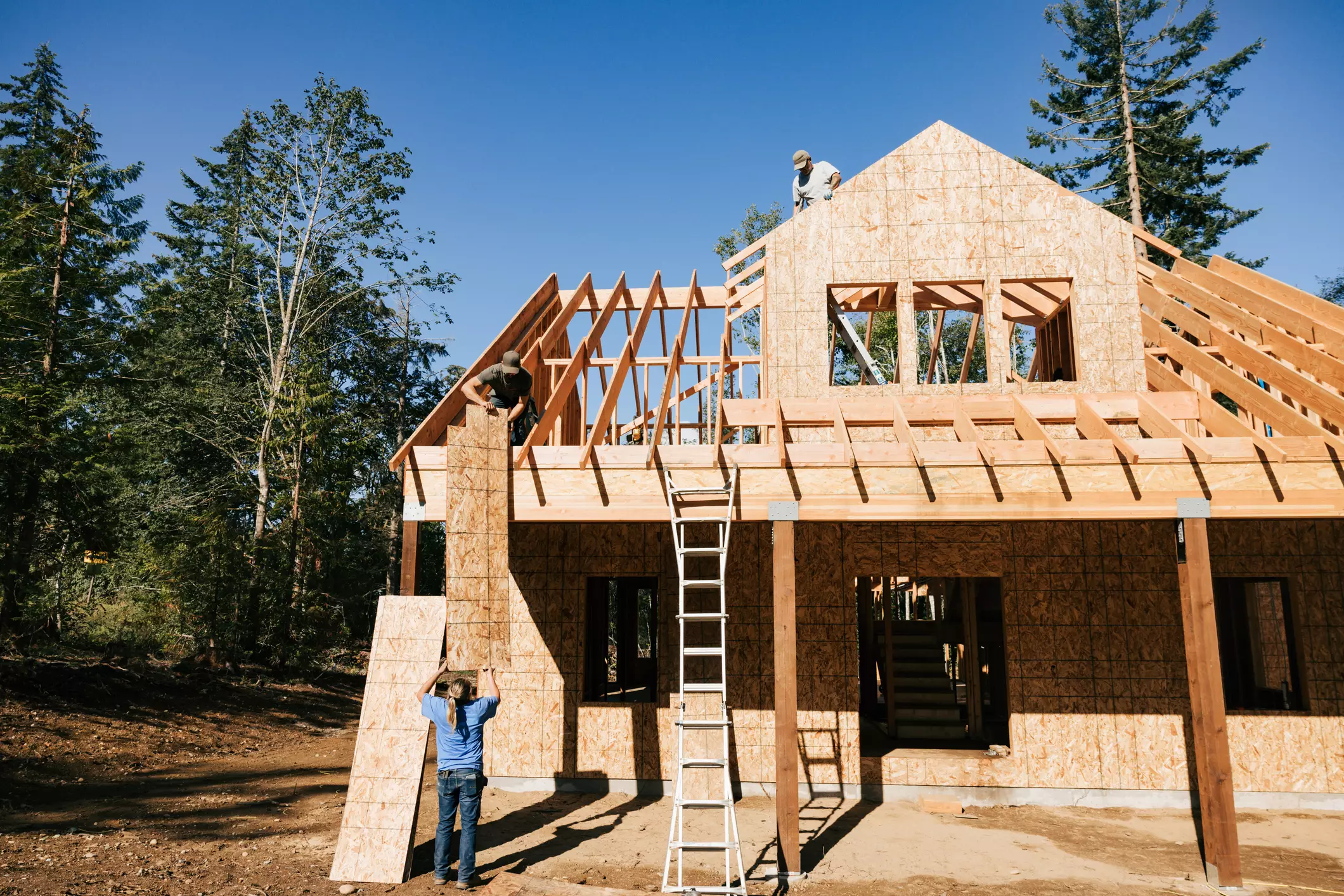How to Find the Value of Your House

Table of Contents
Thinking about selling or refinancing? Or are you curious if your property’s value has changed? If so, you are not alone. Many homeowners regularly ask, “How much is my house worth?”. Knowing your home’s current market value may help you make informed decisions, whether you are preparing to list your property, adjust your insurance, apply for a loan, or simply monitor your investment.
Why Knowing Your Home’s Value Matters
Understanding your home's value may be important in several situations, such as when planning for the future or facing specific financial decisions. This is so because having a clear idea of what your property is worth can help make informed decisions in situations such as the following:
- Selling a property: If you are preparing to sell your home, knowing its value can help you set a competitive asking price, attract serious buyers, and negotiate confidently. Knowing your home's value provides you with a reliable estimate of your property's market standing, allowing you to set the limits when bargaining starts.
- Refinancing or applying for a HELOC: Home value also plays a crucial role in refinancing or applying for a home equity line of credit (HELOC). Lenders may use your home's current value to determine how much equity you have, which directly influences your loan terms, approval chances, and interest rates. A higher valuation may lead to more favorable borrowing conditions.
- Homeowners insurance adjustments: Adjusting your homeowners insurance is another important reason to know your property’s worth. Insurance coverage often reflects the cost to rebuild your home, not just its market value. If your home's value has increased significantly, updating your policy ensures that you are adequately protected in case of damage or loss.
- Estate planning or divorce settlements: In situations like estate planning or divorce settlements, a home value estimate is often required to fairly divide assets. Accurate valuations help ensure that property is distributed equitably among beneficiaries or parties involved, reducing the likelihood of disputes or legal complications.
- Property tax disputes: Homeowners may need a valuation when disputing property taxes. If you believe your tax assessment overstates your home’s value, a professional estimate may serve as evidence to appeal the assessment and potentially lower your property tax bill.
What Affects Your Home’s Value?
A home's value may be influenced by several factors, which may be a combination of physical characteristics, market conditions, and external surroundings. Specifically, the following factors play key roles in how appraisers decide how to determine home value:
- Location: A home in a desirable neighborhood, especially one with access to good schools, parks, and shopping areas, typically holds greater value. Properties in high-demand areas or close to employment hubs also tend to appreciate more quickly than those in less popular locations.
- Square footage and lot size: Generally, larger homes with more usable living space and bigger yards command higher prices. Buyers often compare properties by cost per square foot in estimating the value of a property.
- The age and condition of the property: A well-maintained older home may still have a good value when compared with newer homes if it has been updated and kept in good shape. On the other hand, visible wear, outdated systems, or structural issues may reduce a home’s value.
- Renovations and upgrades: Renovations and upgrades may significantly increase a home's appeal and price. Improvements such as modern kitchens, updated bathrooms, new roofing, or energy-efficient windows often result in a higher valuation. However, not all renovations offer the same return on investment. Therefore, you should only focus on changes that bring solid returns on investment.
- Comparable home sales: Also called comps, comparable home sales refer to recent sales of similar properties in the same area. Appraisers, real estate agents, and online tools often rely on comps to determine your home's value.
- Market trends: In a seller’s market, where demand is high and demand is low, home values typically rise. In contrast, a buyer’s market may lead to lower prices due to increased competition among sellers.
How To Get a Quick Home Value Estimate Online
You may use simple online tools to obtain a quick home value estimate. These tools are categorized under the umbrella term "Automated Valuation Models" (AVMs). Popular AVMs and online home value tools include the Zillow Zestimate, Redfin Estimate, Realtor.com, Chase My Home, and PropertyChecker. Typically, these tools allow users to enter their address and receive a home value estimate within a few seconds. This tool may allow you to get a general idea of where your property stands in the market.
Online home value tools are fast, convenient, and free to use. Using them to find the worth of your property may be a helpful first step if you are thinking about selling, refinancing, or just tracking your investment. However, note that AMVs have certain limitations. Since they rely on publicly available data, AVMs generally lack the context a local appraiser or real estate agent would provide. This may result in less accurate estimates, particularly for homes in rural areas, custom-built properties, or neighborhoods with fewer recent sales.
Professional Methods To Find Out Your Home’s Worth

While online home value tools are a good starting point for individuals looking for an estimate of their home's value, they should not be the only method relied on, especially when making major decisions. When making a major decision, such as selling, refinancing, or settling a legal matter, you should consider professional methods of evaluating your home's worth, as they offer a more accurate and detailed assessment. Two of the most common professional approaches are Comparative Market Analysis (CMA) and a formal home appraisal.
- Comparative Market Analysis (CMA): This method is typically provided by real estate agents and involves reviewing recent sales of similar homes in your area. This is done to estimate what your home may sell for in the current market. In their analysis, agents often consider factors such as square footage, condition, location, and existing property features. While not as precise as an official appraisal, a CMA service, usually offered for free by the agent looking to secure your listing, may offer a well-informed price range based on local market activity.
- Home Appraisal: This method involves a formal valuation of the property as conducted by a licensed appraiser. The home appraisal method is usually required by lenders when you apply for a mortgage, refinance, or home equity loan. Typically, the appraiser inspects the property in person, reviews comparable sales, and analyzes market conditions to determine an unbiased value. Home appraisals typically cost between $300 and $600 or more, depending on the size and location of the property. While not free, this method is considered the most accurate and reliable way to find out your home’s worth.
Tips for Getting the Most Accurate Estimate
If you want a precise home value estimate, then you should consider taking certain practical steps to ensure your property is assessed as accurately as possible. Some of these steps include the following:
- Clean Up and Declutter Before Agent Visits: A clean, well-organized home makes it easier for professionals to assess the true condition and appeal of your property. Therefore, ensure you tidy up both inside and outside to present your home in the best possible light.
- Highlight Recent Upgrades: If you have made improvements, such as installing a new HVAC system, replacing the roof, updating the kitchen, or renovating bathrooms, you must ensure such details are highlighted so that the estimate you get may factor in the improvements. These upgrades can significantly boost your home’s value, especially if they improve energy efficiency or modernize the space.
- Review Comparable Sales in Your Neighborhood: Check homes in your area that are similar to your own and have been sold recently in your area. This gives you a realistic view of the current market and helps you understand how your home compares.
- Avoid Relying on Outdated Information or Tax Assessments: Property tax assessments are often based on formulas that do not reflect current market conditions or recent changes to your home. Similarly, older valuations may no longer be accurate. Therefore, you should seek the most recent and relevant data when determining your home’s worth.
How To Track Your Home’s Value Over Time

Whether you are planning to sell your home in the future or not, tracking the value of the property over time may help you understand how it fits into the local market or what your initial financial outlay in securing the property is now worth. To obtain a fair estimate of your home's value over time, you may use the following tools and strategies:
- Set Alerts on Zillow or PropertyChecker: Online platforms like Zillow and PropertyChecker allow homeowners to track property value estimates and receive updates when changes occur. By setting up alerts, you can stay informed about fluctuations in your home’s estimated value as well as nearby sales that may impact it.
- Work with a Real Estate Agent Annually: Maintaining a relationship with a trusted local real estate agent may be valuable, as some agents offer free annual home value reviews or market snapshots.
- Use County Records to Track Recent Sales: Your local county recorder or assessor’s office maintains public records of recent property transactions. Reviewing these records may help you understand how homes in your area are selling and whether your property is gaining or losing value.
- Understand Trends in Your Zip Code or City: Paying attention to real estate trends in your zip code or city may provide helpful context. Changes in median sale prices, inventory levels, and time on the market all influence home values. Following local news or market reports may keep you informed of broader shifts that may affect your property.
Understanding your home's value is essential to making smart financial, legal, and investment decisions. Whether you're preparing to sell, refinance, adjust insurance coverage, or simply monitor your equity, taking the time to accurately assess your property’s worth can lead to more confident choices. By combining online tools with professional valuation methods and ongoing market awareness, you can stay informed about your home's true value and ensure it continues to serve your long-term goals.









